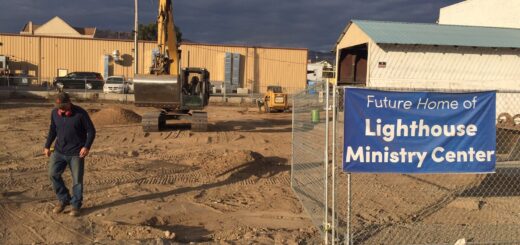Leavenworth food bank’s shopping model helps them serve more people in need, with greater dignity
Every time I connect with the work of Upper Valley MEND (Meeting Each Need with Dignity), I walk away inspired by the work they are doing to foster a sense of belonging and community for those who are living on the margins of the upper valley.
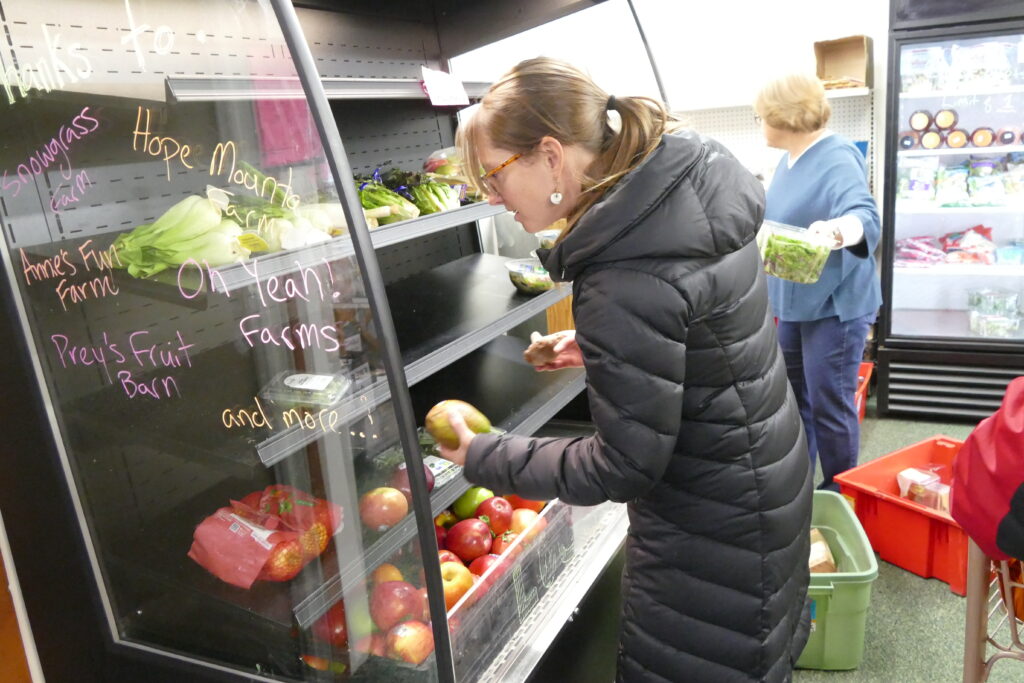
The people in the organization, it seems to me, do their utmost to live the value of meeting each need with dignity. Dignity goes both ways. Many of the customers of MEND donate their time to support the organization.
Recently, I visited the MEND’s food bank, or Community Cupboard, to learn about the intriguing new model they have implemented that creates a true shopping experience for their patrons.
The typical food bank experience can be a less than dignified experience in which a client receives a box of food — what can feel like a handout and make it uncomfortable or less than dignified. There were very few choices, according to MEND executive director (and former Wenatchee World colleague) Kaylin Bettinger.
So a year and a half ago, MEND switched to an entirely different approach that has been used quite effectively in a similar community on Whidbey Island that gives patrons points based on how many people are in the family and allows them to shop for goods that have points associated with that item. The more people in the family, the more points you receive.
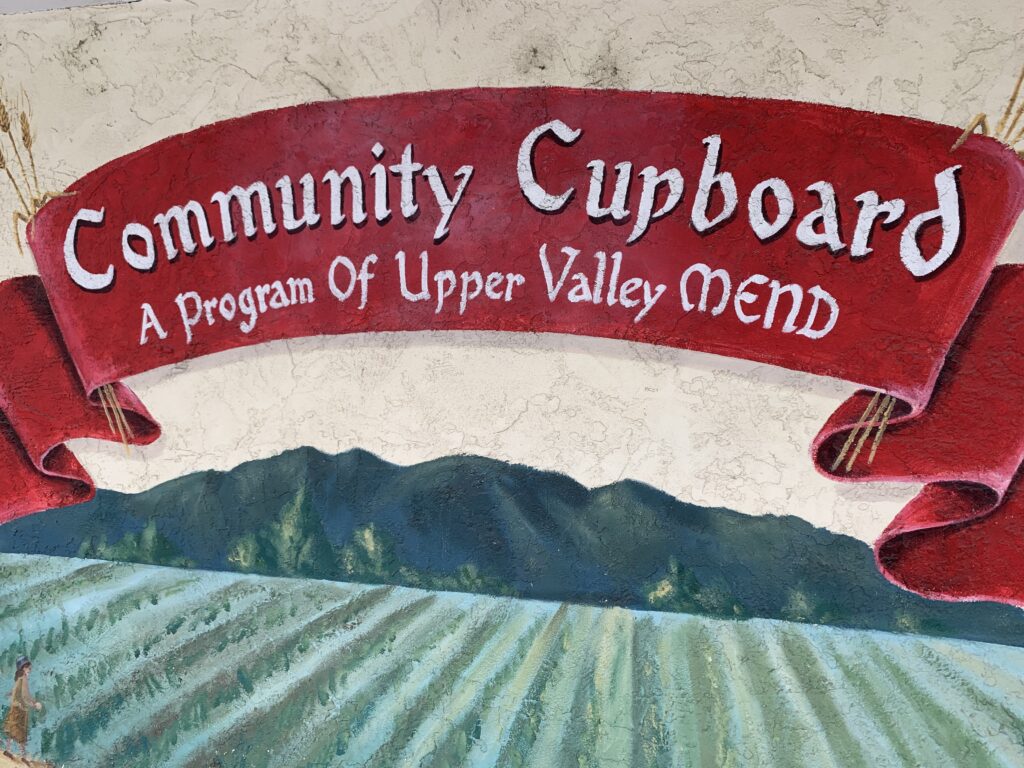
Different types of food, most of which is donated by local grocery stores or regional food bank suppliers like Northwest Harvest, get different points. The shopping model, Bettinger explained, created the opportunity to encourage healthier eating habits by putting fewer points on healthy produce, making it “cheaper” for people to buy fresh produce as opposed to sugar-laden baked goods.
Clients of the food bank, the Community Cupboard, can still exercise the choice to eat less healthy foods but MEND is making it easier for people on the margins to make healthy choices. Furthermore, it allows people to take only what they want and not be stuck with goods they might not use. This is a really smart approach.
Since the switch to a shopping model, MEND seen a 40 percent increase in the number of people using the Community Cupboard. Bettinger feels confident that the more dignified shopping model was a crucial factor in that growth. “The majority (are) new people,” Bettinger said.
Bob Mark is the manager of the Community Cupboard. On the Monday I visited, the staff was busy restocking shelves with goods from a grocery rescue run to Safeway. The food bank is also supported by Dan’s Market and Sage Natural Foods. Several shoppers were in the store while the restocking was happening. In the back room, 17-year volunteer Andi Fletcher was busy folding donated clothing for Das Thrift Haus, MEND’s thrift store. Those not good enough to sell end up being given away at the Community Cupboard.
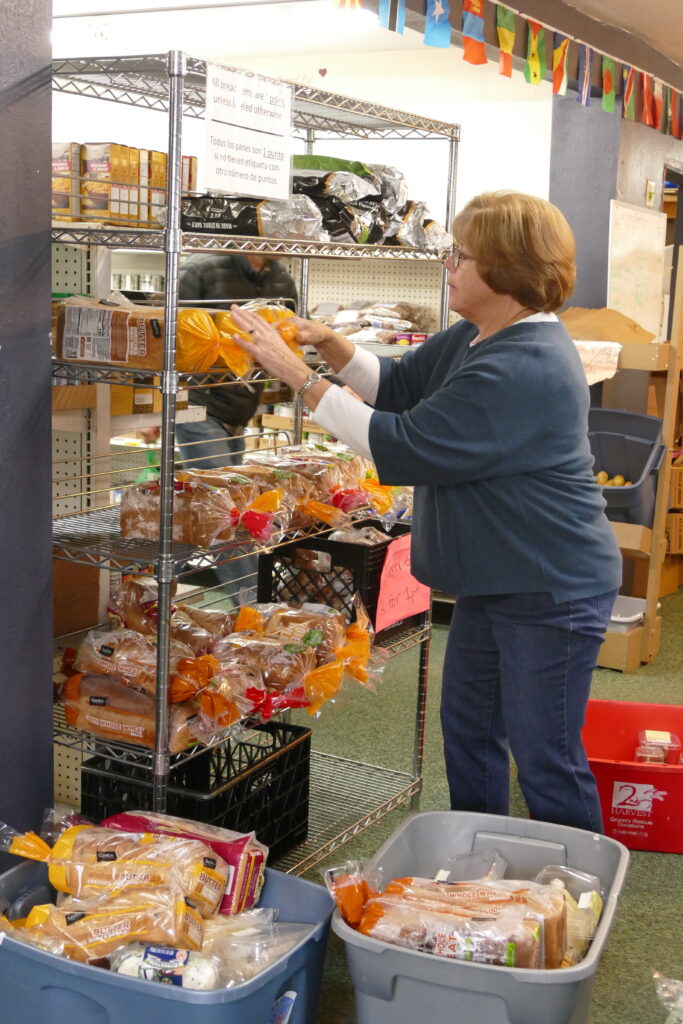
Judy Rector stocks shelves 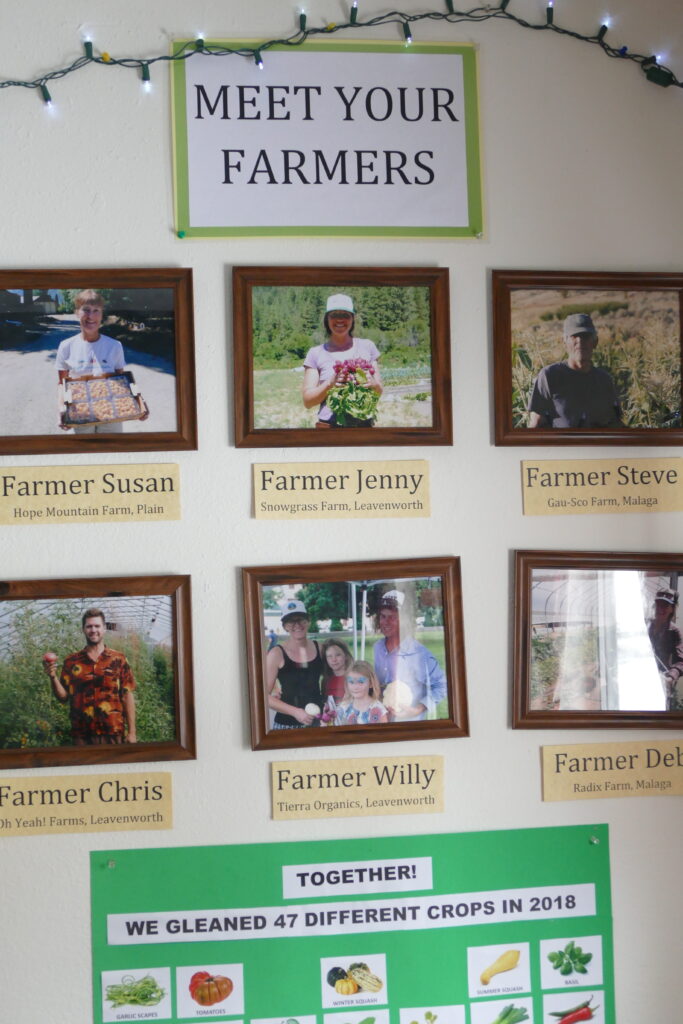
Some of the local farmers supporting the Community Cupboard
Long-time volunteer Judy Rector and long-time staff member Mary Downs were greeting customers and checking them in and out.
A man talked with them about having his wallet stolen and living in his vehicle with his wife. These experiences are nothing new to folks who work with people on the margins, but it is almost unseen by the rest of us in the community.
The food bank and other MEND programs are volunteer-intensive efforts and the community continues to support their efforts to help those who are struggling. A few times a week, Meleah Butruille donates her time to be a navigator for individuals and families who have multiple challenges and need help accessing additional services for things like legal support, mental health issues or addiction. Bettinger called it “empathetic hand holding.”
Based on this pilot program, the MEND board will assess whether to hire someone to provide these services on an ongoing basis.
Besides the Community Cupboard, MEND has a gleaning program for excess or unmarketable fruit and vegetables, SHARE Community Land Trust which provides affordable home ownership, Cornerstone Community serving adults with developmental disabilities, the Upper Valley Free Clinic, Jubilee Global Gifts and Das Thrift Haus. Housing, hunger, healthcare and emergency services are its primary focus areas.
Helping those in need is ever more important in tourist-focused communities like Leavenworth. The work MEND does in threading the community together is extraordinary. Donations are needed and welcomed. Learn more at uvmend.org.



